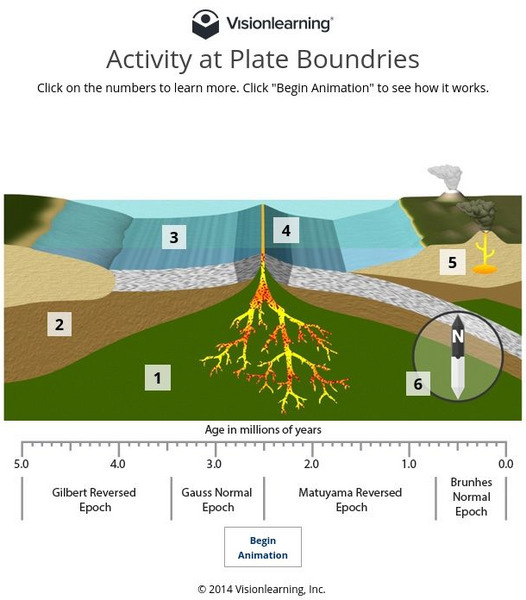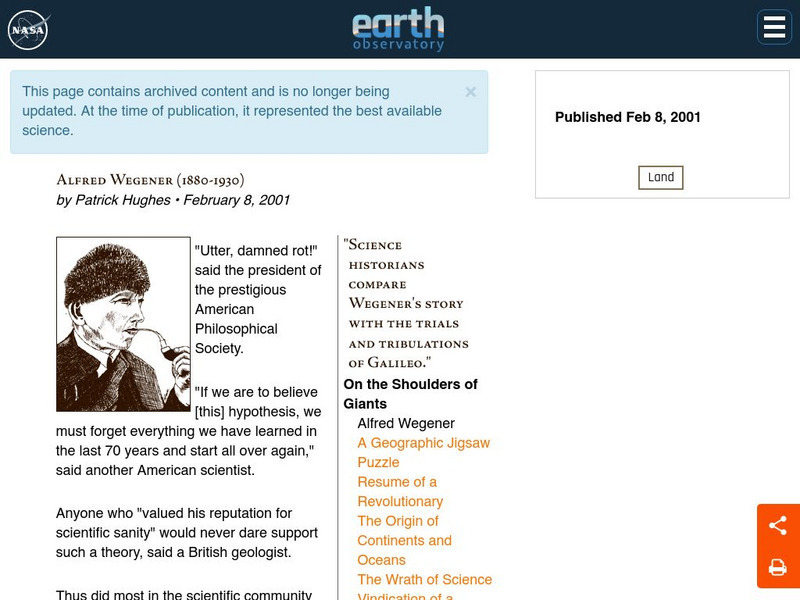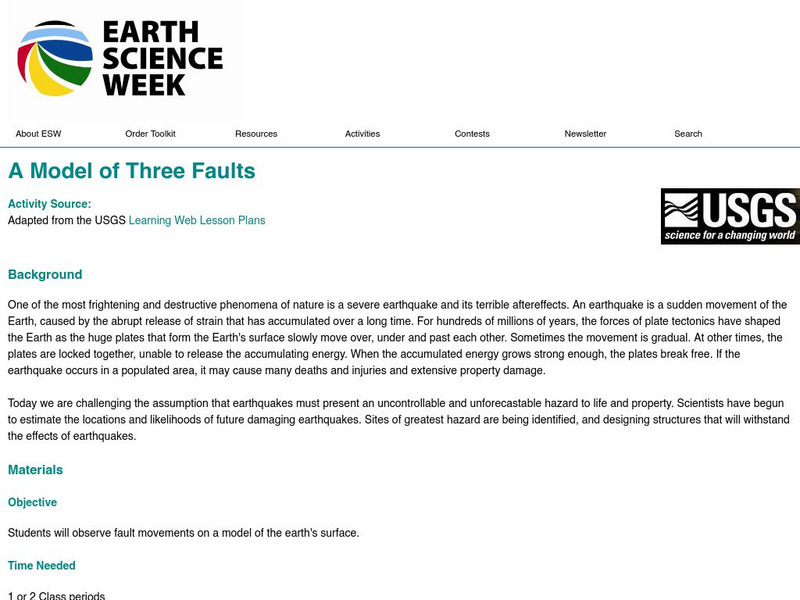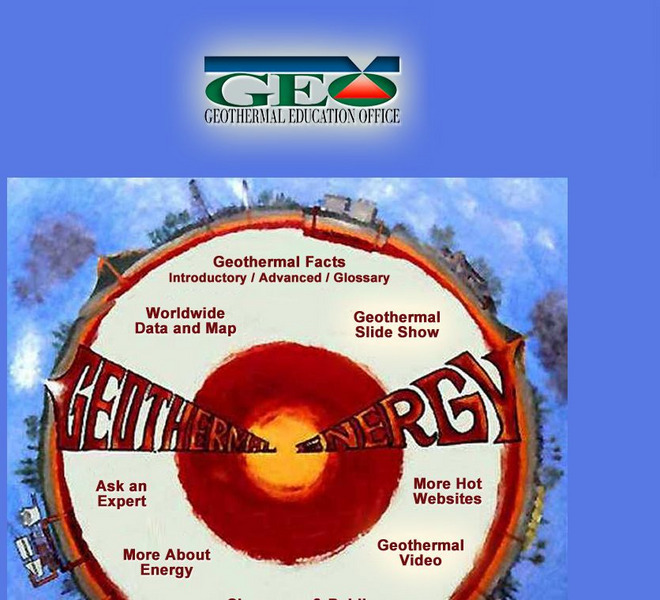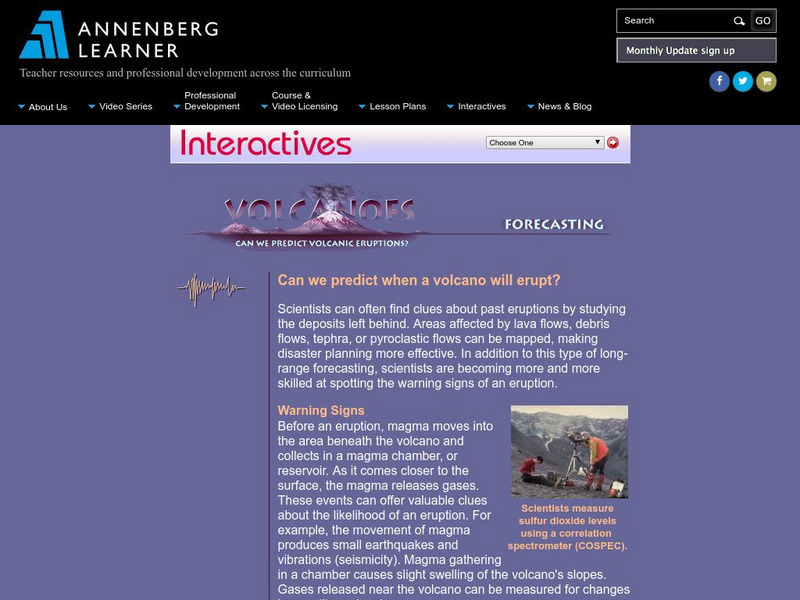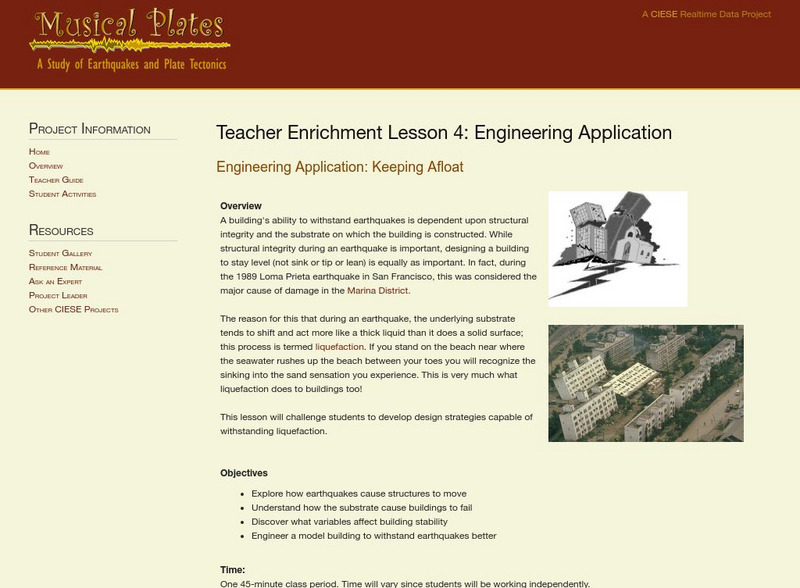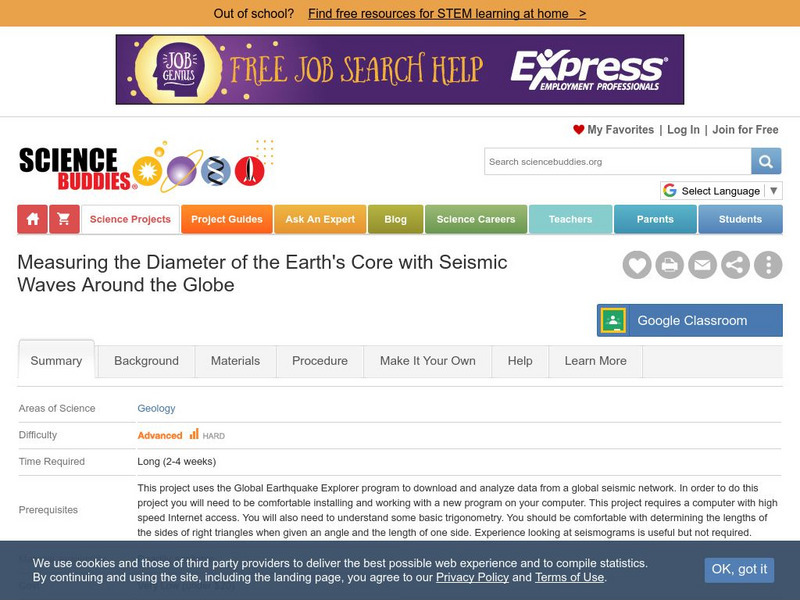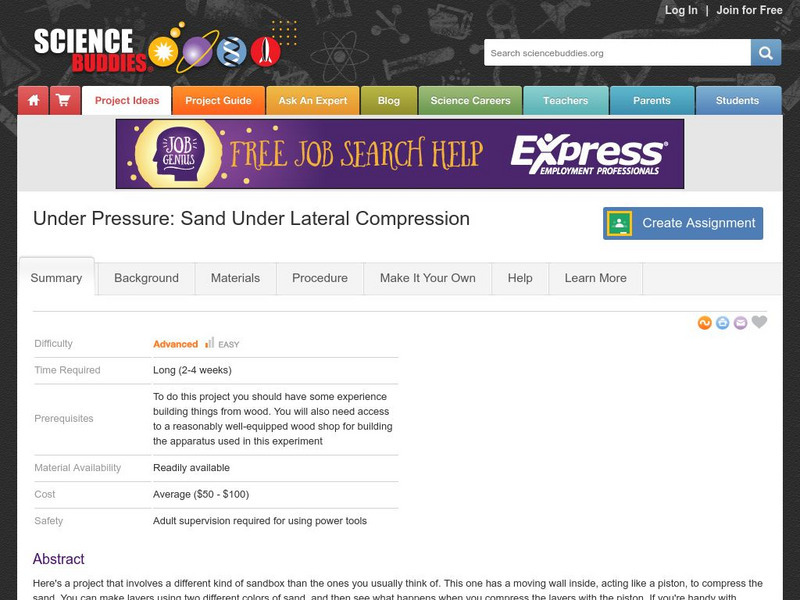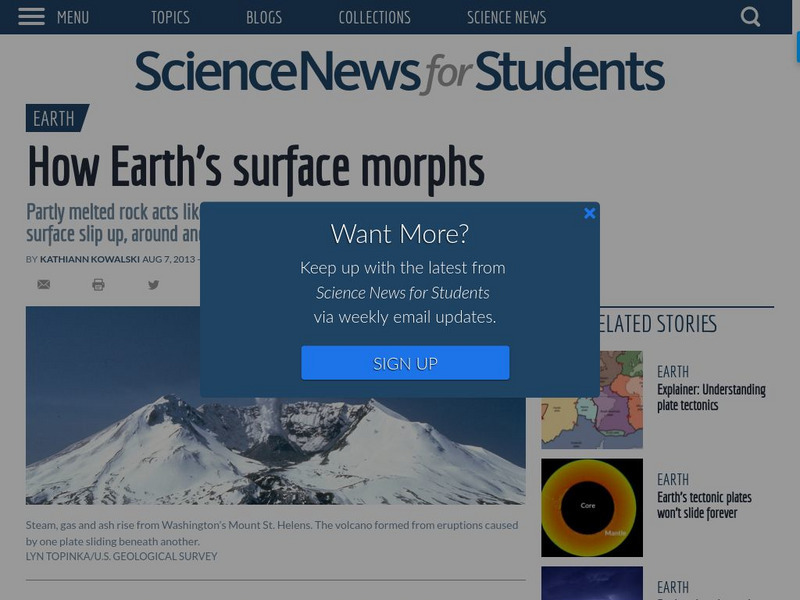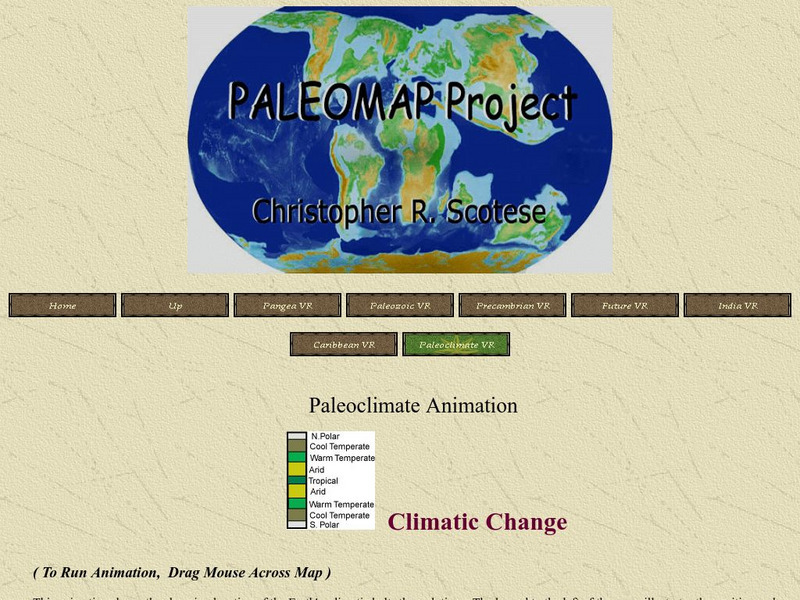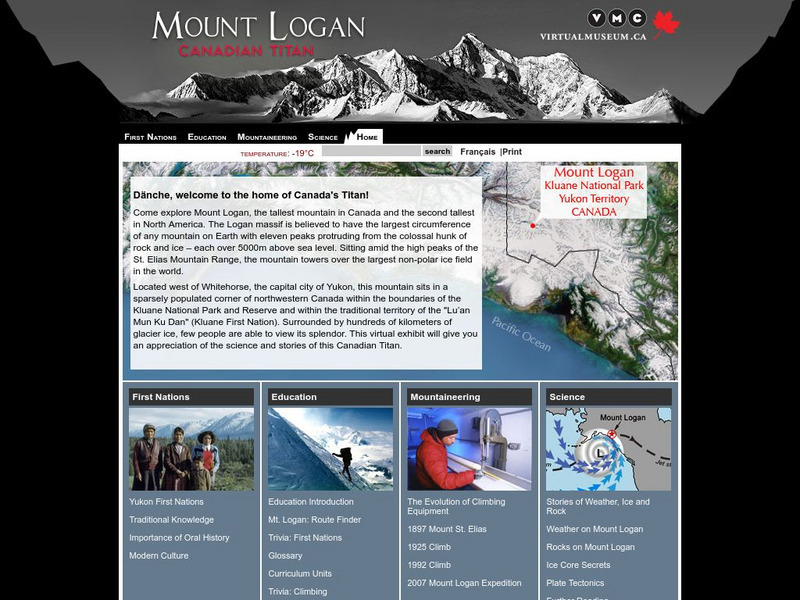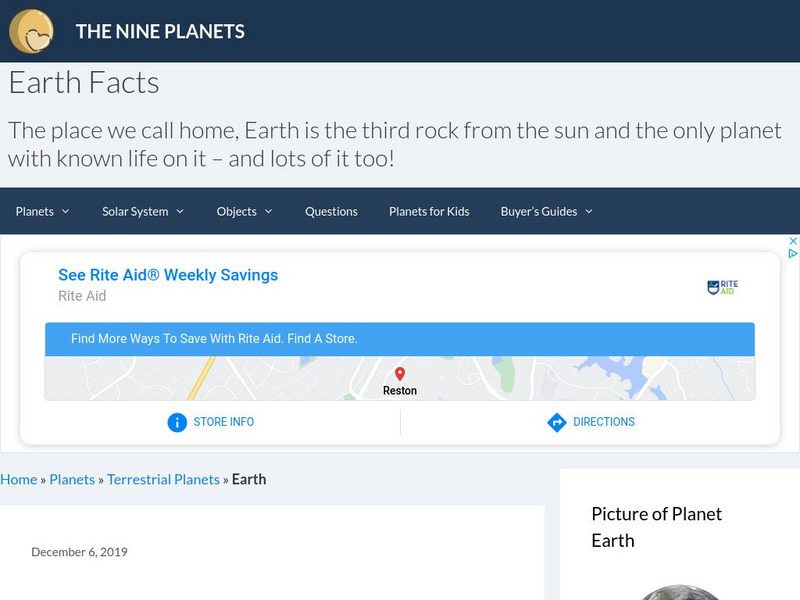Vision Learning
Visionlearning: Activity at Plate Boundaries
A simulation that demonstrates divergent plate boundaries and seafloor spreading. A focus is on evidence of the Earth's normal and reversed polarity over geologic time in the rock record.
NASA
Nasa: Alfred Wegener
An excellent biography of Wegener that includes his breakthrough work and the storm of controversy it created. Finally, Alfred Wegener has gotten the praise and recognition he deserved.
American Geosciences Institute
American Geosciences Institute: Earth Science Week: A Model of Three Faults
In this lesson plan, students learn about the different kinds of faults and plate boundaries and where they can be found. They research and report on the faults that are present in their state. They are also asked to develop models of...
Other
Geothermal Education Office
This resource for geothermal energy education features a slide show with instructive graphics.
University of California
University of California: Understanding Earthquakes
This website is a resource for learning about earthquakes. Java animation at this site helps you visually understand the causes of earthquakes.
Annenberg Foundation
Annenberg Learner: Essential Science for Teachers: Earth and Space 3
Visit an active volcano site to find out the connection between the movement of the Earth's plates and the processes deep within the Earth's interior. [58:23]
Annenberg Foundation
Annenberg Learner: Volcanoes: Forecasting Eruptions
A look at some of the methods and problems with forecasting volcanic eruptions.
Center for Innovation in Engineering and Science Education, Stevens Institute of Technology
Where Will Your Home Be in a Million Years?
Students will use the global velocities map to predict where their home will be in a million years.
Center for Innovation in Engineering and Science Education, Stevens Institute of Technology
Ciese: Musical Plates: Engineering Application: Keeping Afloat
A lesson that looks at how to design a building so that it will withstand an earthquake and not sink or lean over.
American Geosciences Institute
American Geosciences Institute: Oceans
Seven hands-on lessons module in which students explore oceans. Inquiry-based investigations include properties of seawater, ocean water and currents, and features of the ocean floor.
Story Behind the Science
Story Behind the Science: Development of a Mechanism for Continental Drift [Pdf]
Article describing the history of scientific theories about continental drift, and the major researchers involved in this work.
Science Buddies
Science Buddies: Measuring the Earth's Core With Seismic Waves
When an earthquake occurs, seismic shock waves travel out through the earth from the source of the event. The shock waves travel through the earth (body waves), or along the Earth's surface (surface waves), and can be recorded at remote...
Science Buddies
Science Buddies: Under Pressure: Sand Under Lateral Compression
Here's a project that involves a different kind of sandbox than the ones you usually think of. This one has a moving wall inside, acting like a piston, to compress the sand. You can make layers using two different colors of sand, and...
Society for Science and the Public
Science News for Students: How Earth's Surface Morphs
Article reports on how the surface of the Earth changes over time. Includes a list of vocabulary words from the article.
Other
Paleoclimate Animation
This animation allows you to see how the continent's climates changed as they drifted throughout history.
PBS
Pbs: A Science Odyssey
Website for the PBS series "A Science Odyssey." Numerous opportunities to explore the people and discoveries of science.
Other
Usgs: Geology in the Parks
Details regarding the geology of national parks in the United States.
US Geological Survey
Usgs: The San Andreas Fault
A great overall site that tells us about the San Andreas fault, where it is and what kind of movements have occurred. It then goes on to talk about earthquakes in general and their occurrences along fault lines.
NOAA
Noaa: National Ocean Service Education: Global Positioning Tutorial
Illustrated tutorial explains the history and science of geodesy. Animations help students visualize how scientists measure and monitor the size and shape of the Earth and the location of points on its surface.
PBS
Pbs News Hour Extra: You Don't Need a Seismograph to Study Earthquakes
Three part lesson will provide students with information about earthquakes and how to predict them using various Web sites. Activities include historical background on major earthquakes, investigating mechanical waves, and simulating...
Virtual Museum of Canada
Virtual Museum of Canada: Mt. Logan: Canadian Titan
Mt. Logan in Canada's Yukon Territory is the tallest mountain in Canada and the second tallest in North America. Learn about the people who live around it, the history of mountaineering in the area, and the science - both geological and...
Other
Geological Survey Program: Facts About the New Madrid Seismic Zone
It's surprising to find out that the New Madrid Seismic Zone is the most seismically active area in the United States. The facts go into the New Madrid fault very scientifically and are very detailed. Find maps and charts showing...
Nine Planets
The Eight Planets: Earth
Excellent Eight Planets site that provides a vast amount of information about planet Earth. Very comprehensive and complete site.
US Geological Survey
U.s. Geological Survey: Geologic Time
A discussion of geologic time, how scientists use the concept, and how they have determined its span.
Other popular searches
- Plate Tectonics Activities
- Plate Tectonics Pangaea
- Plate Tectonic Demonstration
- Science Plate Tectonics
- Lessons on Plate Tectonics
- Theory of Plate Tectonics
- Plate Tectonics Lab Activity
- Modeling Plate Tectonics
- Evidence for Plate Tectonics
- Plate Tectonics Theory
- Plate Tectonics Word Search
- Tectonic Plate Boundaries


